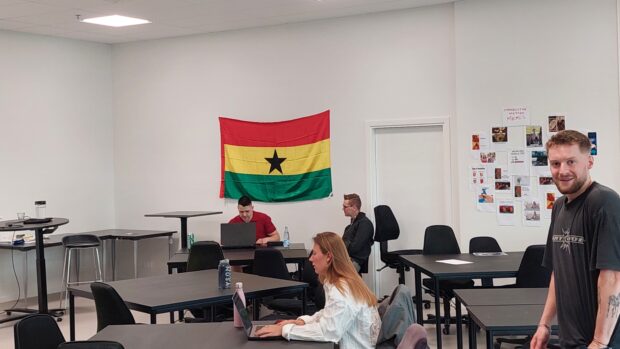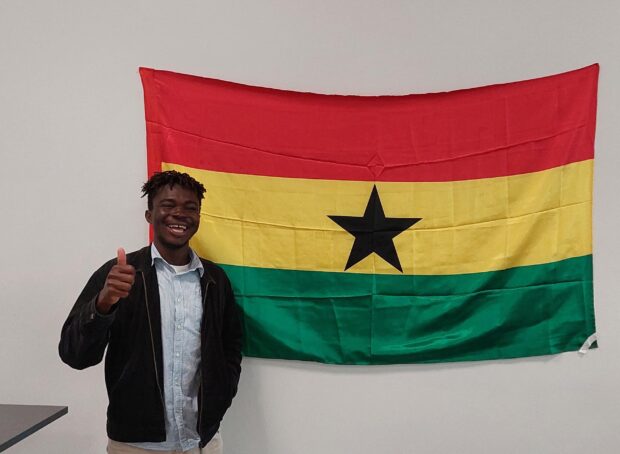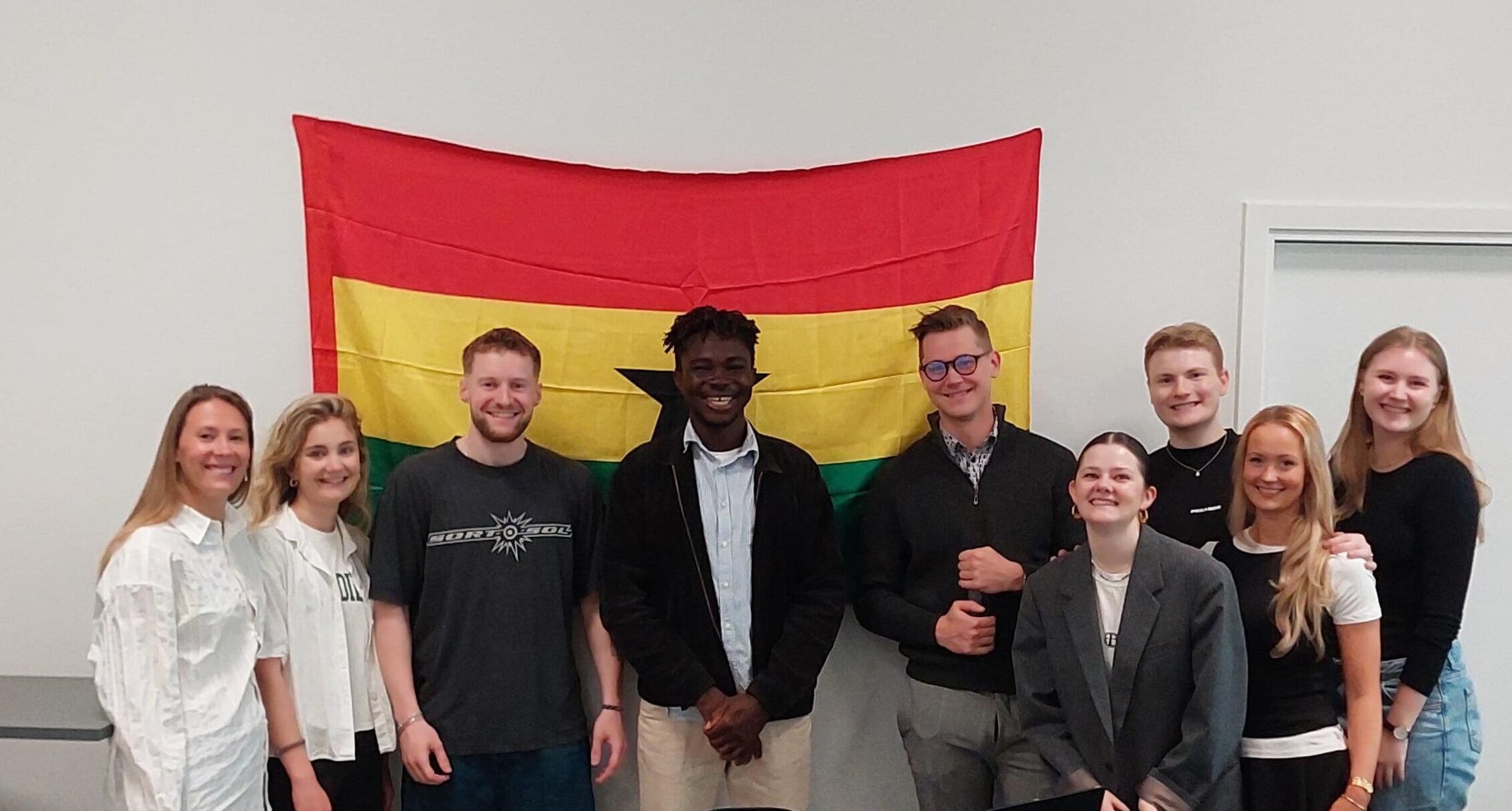In Copenhagen, in a classroom of the Danish School of Media and Journalism, I found an unexpected symbol of home hanging proudly on the wall—a Ghanaian flag.
It wasn’t part of a planned cultural display or an official representation of my heritage; rather, it was a spontaneous act by a Danish student who admired the vibrant colors of the flag.
This simple, serendipitous decoration evoked a profound sense of joy and belonging in me, highlighting the powerful connections we hold with our national symbols, even in a globalized world.
The serendipity of symbols
Flags, emblems of national identity, often evoke strong emotions.
For me, seeing the red, yellow, and green with the black star in a foreign classroom was like finding an oasis in the desert.
It was more than just a piece of cloth; it was a reminder of home, family, and the rich cultural tapestry of Ghana.
This random act by a fellow student became a significant gesture, underscoring how national symbols can resonate deeply with individuals, far beyond their intended political or cultural messages.
The role of national symbols in a global era
In an age marked by global turbulence and rapid migration, the attachment to national symbols can play a dual role.
On one hand, they ground individuals in their cultural roots, offering a sense of stability and identity. On the other, they can foster inclusivity and global awareness when shared and respected across borders.
The Ghanaian flag in a Danish classroom became a bridge between cultures, fostering curiosity and dialogue among my peers.
It was a testament to how national pride, when expressed positively, can enhance global understanding and unity.
Patriotism and positive global representation
Patriotism often conjures images of fervent nationalism, sometimes leading to exclusionary practices. However, when approached with openness and respect, patriotism can inspire positive global representation.
My experience in Denmark has shown me that being proudly Ghanaian does not mean closing off from the world; rather, it means sharing my culture and values with others.
This flag in the classroom wasn’t just a symbol of Ghana; it was a beacon of diversity, illustrating that national pride can coexist with global citizenship.

The study abroad experience: A Ghanaian perspective
Studying abroad has been an eye-opening journey, filled with challenges and triumphs.
As a young Ghanaian student, navigating a new educational system, cultural differences, and even the Danish weather, has been transformative.
Each day brings a new lesson, whether it’s adapting to different communication styles in our Corporate Communication program or learning to appreciate the subtleties of Danish culture.
My international cohort of 15 students from all over the world has created a melting pot of perspectives, enriching my understanding of global dynamics and my own identity.
Embracing global citizenship
This experience has reinforced the idea that while we come from different corners of the world, our shared human experiences bind us.
The presence of the Ghanaian flag in Denmark is a small but powerful symbol of this interconnectedness. It reminds me that my identity as a Ghanaian enriches the global mosaic and that embracing my heritage can inspire others to share and celebrate their own.
When all is said and done
The unexpected appearance of the Ghanaian flag in a Danish classroom is more than a mere anecdote; it is a reflection of the deep connections we hold with our national identities and the potential for these symbols to foster global unity.
As we navigate an era of global challenges, embracing and sharing our cultural symbols can inspire a more inclusive and understanding world. This experience has been a testament to the power of patriotism when expressed with openness and respect, and it has profoundly shaped my journey as a Ghanaian student abroad.
But as we celebrate our diverse identities, we must also ask ourselves: How can we leverage our national symbols to not only cherish our roots but also bridge the divides between us?
In a world that often highlights our differences, how can we use our shared symbols of pride to inspire a global community that values unity in diversity?




